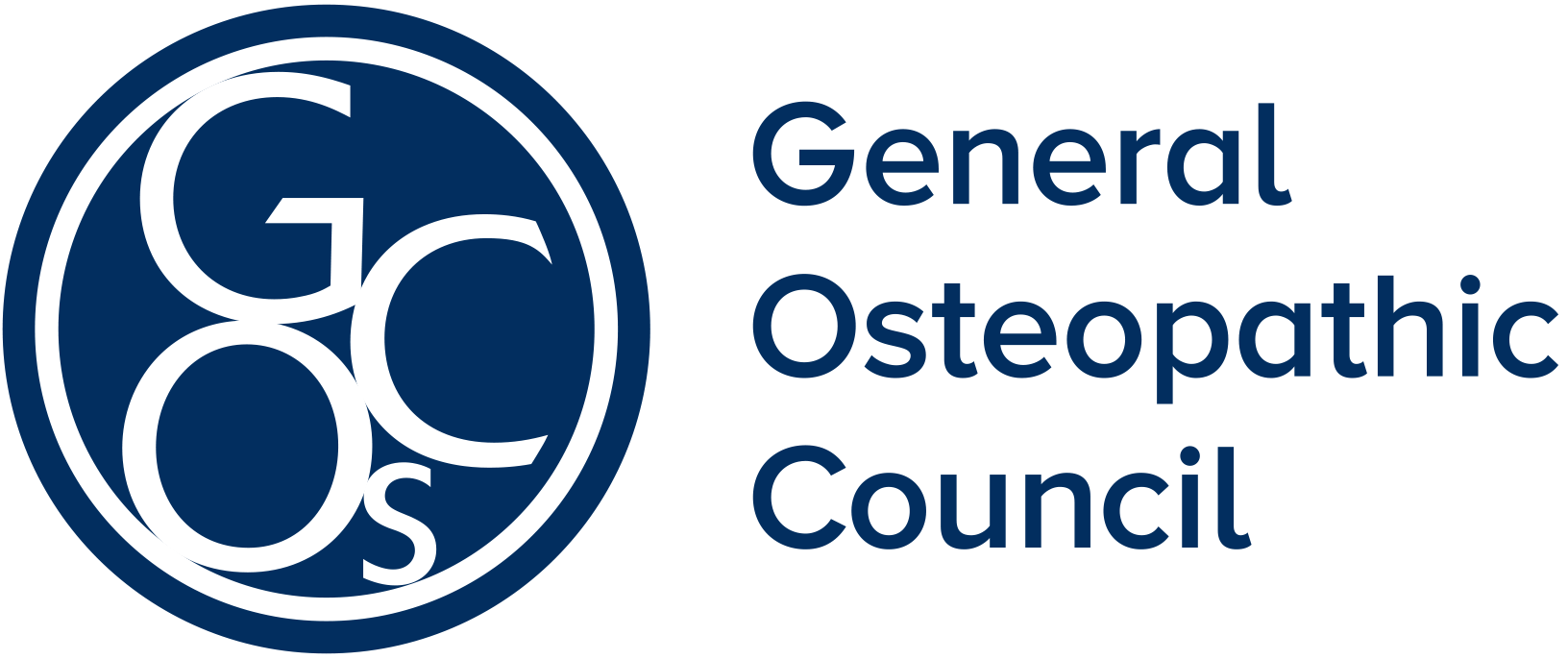Objective Activity
Patient feedback
Patient Reported Outcome Measures (PROMs)
Patient Reported Outcome Measures (PROMs) can be used to gather anonymous feedback from patients. This enables osteopaths to reflect on how patients respond to osteopathic treatment by asking:
- How patients feel before treatment
- How patients feel one week after treatment
- How patients feel six weeks after treatment
Being aware of this information can help osteopaths to enhance their treatments and learn more about the effectiveness of the treatments they are providing.
The National Council for Osteopathic Research (NCOR) has launched a service available to all osteopaths which allows feedback to be collected from adult patients and about paediatric patients on a national basis. The questionnaires are quick and easy for patients to complete on their own behalf or on behalf of their child. NCOR will analyse the data and provide a summary report to individual osteopaths. Reflection on that report enables osteopaths to both enhance their practice and to meet the ‘objective activity’ requirement of the CPD scheme.
Participating in PROMs will also support the osteopathic profession to develop a more robust evidence base about osteopathic care. The more osteopaths that participate, the better the evidence base will be.
What questions are patients asked to answer?
NCOR are using the modified Bournemouth Questionnaire (Gurden et al., 2012). The Bournemouth Questionnaire is a composite patient reported outcome measure (PROM) comprised of seven domains examining the patient’s complaint and how they cope with it, interference in daily activities, interference in social activities, the experience of anxiety and depression due to the symptoms, and the effect of work Each item is scored on a 0-10 point scale. The scores for each item are added up to give a total score which can produce a value between a minimum score of 0, and a maximum score of 70. The higher the score, the higher the degree of impact on a patient’s life.
Prior to treatment
Patients are asked to provide:
- Anonymous demographic information including age, sex, and work status
- Duration of current symptoms
- General health status
- Waiting time to first appointment offered
- Main reason for seeking treatment
- Main areas affected by symptoms
- Bournemouth Questionnaire scores
Follow up at one week
- Patient satisfaction of osteopathic care
- Patient experience of osteopathic care
- Patient recommendation of the service they have used
- Change in a patient’s global health status (how they are feeling as a result of treatment)
- Change in a patient’s symptoms using the Bournemouth Questionnaire
Follow up at six weeks
Patients are asked to provide:
- Patient satisfaction with osteopathic care
- Patient experience of osteopathic care
- Patient recommendation of the service they have used
- Change in a patient’s global health status
- Change in a patient’s symptoms using the Bournemouth Questionnaire
- Total number of treatments received.
When do I receive a report from NCOR
When NCOR has received completed data sets (completed before treatment, one week and six weeks post-treatment) from 25 patients, they will send you a report. This ensures that individual patients are not identified.
NCOR will also use your anonymous and aggregated data to develop the evidence base for osteopathy nationally. You will not be identified but you will be contributing to the development of the profession.
How do I collect patient reported outcome measures?
Firstly, you need to contact NCOR so that they can give you the information to give to your patients. In order to do this, you should contact Carol Fawkes by email at c.fawkes@qmul.ac.uk. You will receive information sheets to send out to your patients before their first treatment with you. The information sheets explain the purpose of the project and provide assurance of confidentiality to the patient and explain how the information that they provide will be used. The information sheets also explain how patients can provide the information (either via a website or via an app for most smartphones and tablet computers/iPads). Contact details are also provided for patients to contact if they have any questions or difficulties in providing data.
You will be asked to invite each of your new patients if they would be willing to submit data about their osteopathic care. This can be done by adult patients on their own behalf or by parents about their children.
Consider how you will send information to patients in advance of their treatment with you. For example, you may send the information about PROMs to patients along with your practice leaflet and any other information that you send to patients in advance.
As well as sending information in advance, consider publicising the study in your waiting room with a poster or other information to encourage patients to provide the feedback (NCOR can help with this).
On the day
You will not know which patients have decided to participate in the NCOR PROMs. At the beginning or end of your consultations, consider asking your receptionist to tell patients that you are participating in a national study about the outcome of osteopathic care to enhance your practice.
After the event
NCOR will contact you when they have received the minimum number of data sets. When you receive the report, reflect on the results. Patient experience and satisfaction data about your practice can be used to show a quality service, and they may also identify areas where you could improve or enhance your practice further.
Consider how the results indicate what is going well and identify areas of strength, as well as areas for further development. You should also consider how the results might help you to enhance your practice further. It is worth discussing your results with a colleague and you may find it helpful to develop an action plan which identifies what you might do differently.
For further information visit: National Council for Osteopathic Research PROMs webpage.
